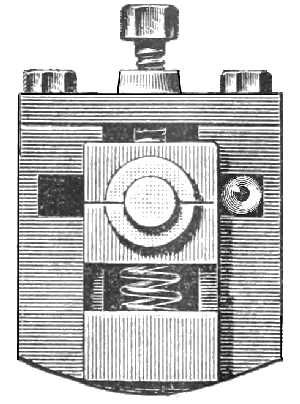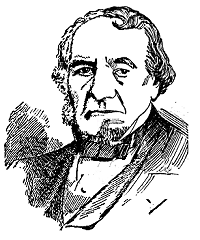 Do we need robots to be conscious? Ryota Kanai thinks it is largely up to us whether the machines wake up – but he is working on it. I think his analysis is pretty good and in fact I think we can push it a bit further.
Do we need robots to be conscious? Ryota Kanai thinks it is largely up to us whether the machines wake up – but he is working on it. I think his analysis is pretty good and in fact I think we can push it a bit further.
His opening remarks, perhaps due to over-editing, don’t clearly draw the necessary distinction between Hard and Easy problems, or between subjective p-consciousness and action-related a-consciousness (I take it to be the same distinction, though not everyone would agree). Kanai talks about the unsolved mystery of experience, which he says is not a necessary by-product of cognition, and says that nevertheless consciousness must be a product of evolution. Hm. It’s p-consciousness, the ineffable, phenomenal business of what experience is like, that is profoundly mysterious, not a necessary by-product of cognition, and quite possibly nonsense. That kind of consciousness cannot in any useful sense be a product of evolution, because it does not affect my behaviour, as the classic zombie twin thought experiment explicitly demonstrates. A-consciousness, on the other hand, the kind involved in reflecting and deciding, absolutely does have survival value and certainly is a product of evolution, for exactly the reasons Kanai goes on to discuss.
The survival value of A-consciousness comes from the way it allows us to step back from the immediate environment; instead of responding to stimuli that are present now, we can respond to ones that were around last week, or even ones that haven’t happened yet; our behaviour can address complex future contingencies in a way that is both remarkable and powerfully useful. We can make plans, and we can work out what to do in novel situations (not always perfectly, of course, but we can do much better than just running a sequence of instinctive behaviour).
Kanai discusses what must be about the most minimal example of this; our ability to wait three seconds before responding to a stimulus. Whether this should properly be regarded as requiring full consciousness is debatable, but I think he is quite right to situate it within a continuum of detached behaviour which, further along, includes reactions to very complex counterfactuals.
The kind he focuses on particularly is self-consciousness or higher-order consciousness; thinking about ourselves. We have an emergent problem, he points out, with robots whose reasons are hidden; increasingly we cannot tell why a complex piece of machine learning resulted in the behaviour that resulted. Why not get the robot to tell us, he says; why not enable it to report its own inner states? And if it becomes able to consider and explain its own internal states, won’t that be a useful facility which is also like the kind of self-reflecting consciousness that some philosophers take to be the crucial feature of the human variety?
There’s an immediate and a more general objection we might raise here. The really bad problem with machine learning is not that we don’t have access to the internal workings of the robot mind; it’s really that in some cases there just is no explanation of the robot’s behaviour that a human being can understand. Getting the robot to report will be no better than trying to examine the state of the robot’s mind directly; in fact it’s worse, because it introduces a new step into the process, one where additional errors can creep in. Kanai describes a community of AIs, endowed with a special language that allows them to report their internal states to each other. It sounds awfully tedious, like a room full of people who, when asked ‘How are you?’ each respond with a detailed health report. Maybe that is quite human in a way after all.
The more general theoretical objection (also rather vaguer, to be honest) is that, in my opinion at least, Kanai and those Higher Order Theory philosophers just overstate the importance of being able to think about your own mental states. It is an interesting and important variety of consciousness, but I think it just comes for free with a sufficiently advanced cognitive apparatus. Once we can think about anything, then we can of course think about our thoughts.
So do we need robots to be conscious? I think conscious thought does two jobs for us that need to be considered separately although they are in fact strongly linked. I think myself that consciousness is basically recognition. When we pull off that trick of waiting for three seconds before we respond to a stimulus, it is because we recognise the wait as a thing whose beginning is present now, and can therefore be treated as another present stimulus. This one simple trick allows us to respond to future things and plan future behaviour in a way that would otherwise seem to contradict the basic principle that the cause must come before effect.
The first job that does is allow the planning of effective and complex actions to achieve a given goal. We might want a robot to be able to do that so it can acquire the same kind of effectiveness in planning and dealing with new situations which we have ourselves, a facility which to date has tended to elude robots because of the Frame Problem and other issues to do with the limitations of pre-programmed routines.
The second job is more controversial. Because action motivated by future contingencies has a more complex causal back-story, it looks a bit spooky, and it is the thing that confers on us the reality (or the illusion, if you prefer) of free will and moral responsibility. Because our behaviour comes from consideration of the future, it seems to have no roots in the past, and to originate in our minds. It is what enables us to choose ‘new’ goals for ourselves that are not merely the consequence of goals we already had. Now there is an argument that we don’t want robots to have that. We’ve got enough people around already to originate basic goals and take moral responsibility; they are a dreadful pain already with all the moral and legal issues they raise, so adding a whole new category of potentially immortal electronic busybodies is arguably something best avoided. That probably means we can’t get robots to do job number one for us either; but that’s not so bad because the strategies and plans which job one yields can always be turned into procedures after the fact and fed to ‘simple’ computers to run. We can, in fact, go on doing things the way we do them now; humans work out how to deal with a task and then give the robots a set of instructions; but we retain personhood, free will, agency and moral responsibility for ourselves.
There is quite a big potential downside, though; it might be that the robots, once conscious, would be able to come up with better aims and more effective strategies than we will ever be able to devise. By not giving them consciousness we might be permanently depriving ourselves of the best possible algorithms (and possibly some superior people, but that’s a depressing thought from a human point of view). True, but then I think that’s almost what we are on the brink of doing already. Kanai mentions European initiatives which may insist that computer processes come with an explanation that humans can understand; if put into practice the effect, once the rule collides with some of those processes that simply aren’t capable of explanation, would be to make certain optimal but inscrutable algorithms permanently illegal.
We could have the best of both worlds if we could devise a form of consciousness that did job number one for us without doing job two as an unavoidable by-product, but since in my view they’re all acts of recognition of varying degrees of complexity, I don’t see at the moment how the two can be separated.

 As Gilbert and Sullivan had it,
As Gilbert and Sullivan had it,